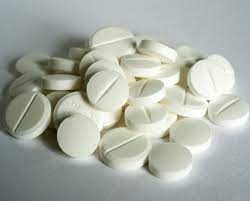Recent Research Findings to Be Presented at EASD Annual Meeting
Lower Risk of Type 2 Diabetes in Older Adults Linked to Low-Dose Aspirin
New research set to be unveiled at this year’s Annual Meeting of the European Association for the Study of Diabetes (EASD) in Hamburg, Germany (2-6 October) reveals a noteworthy association between the use of low-dose aspirin (100mg daily) among individuals aged 65 years and older and a 15% reduction in the risk of developing type 2 diabetes. The study, led by Professor Sophia Zoungas from the School of Public Health and Preventive Medicine at Monash University, Melbourne, Australia, suggests that anti-inflammatory agents like aspirin warrant further investigation as potential tools in diabetes prevention.
Investigating the Effect of Low-Dose Aspirin on Type 2 Diabetes Risk in Older Adults
Uncertainty Surrounding the Impact of Aspirin on Incident Type 2 Diabetes Explored
A Follow-Up Study of the ASPREE Trial
This study delves into the randomized treatment effect of low-dose aspirin on the incidence of diabetes and fasting plasma glucose (FPG) levels among older adults. It builds upon the ASPREE trial, a double-blind, placebo-controlled aspirin trial whose primary results were published in the New England Journal of Medicine in 2018. For more about CGM Subscription Services, The original ASPREE study had indicated that aspirin use led to a 38% increased risk of major bleeding events in older adults, without a corresponding reduction in cardiovascular disease incidence.
Read Guide about Wegovy Dosage Guide: The Best Way For Weight Loss
Study Participants and Randomization
The study recruited community-dwelling individuals aged 65 years or older who were free from cardiovascular disease, physical disability that limits independence, and dementia. Participants were randomly assigned in a 1:1 ratio to receive either 100 mg of daily aspirin or a placebo. Incident diabetes was defined as a self-report of diabetes, the initiation of glucose-lowering medications, or a fasting plasma glucose (FPG) level of 7.0 mmol/L or higher at annual follow-up visits. Individuals with diabetes at the beginning of the study were excluded. Computerized modeling and statistical analysis assessed the impact of aspirin on incident diabetes and FPG levels, respectively.
Tip: Please fill out this form to determine whether or not you or a friend are eligible for a CGM.
Key Study Findings
Among the 16,209 participants included in the analysis (8,086 in the group given aspirin, and 536 people were given a placebo) a total of 995 incident diabetes cases were recorded (459 in the aspirin group and 536 in the placebo group). Compared to the placebo group, the aspirin group experienced a 15% reduction in incident diabetes and a slower rate of increase in fasting plasma glucose (FPG) levels (with a difference in annual FPG change of -0.006 mmol/L).
Read More About: Type 2 Diabetes And Prediabetes Diagnose Through A1C Test
Implications and Future Research
“Aspirin treatment not only reduced the incidence of diabetes but also slowed the increase in fasting plasma glucose over time in initially healthy older adults,” the authors of the study observed. Given the rising prevalence of type 2 diabetes in older populations, further research is needed to explore the potential of anti-inflammatory agents, such as aspirin, in preventing type 2 diabetes or improving glucose levels.”
Cautionary Notes on Aspirin Use
However, Professor Zoungas adds a cautionary note: “The previously published trial findings from ASPREE in 2018 indicated that aspirin did not extend healthy independent living but was associated with a significantly increased risk of bleeding, primarily in the gastrointestinal tract. Major prescribing guidelines now recommend that older adults should take daily aspirin only when there is a clear medical indication, such as following a heart attack.”
“Although these new findings are intriguing, they do not alter the current clinical recommendations regarding aspirin use in older individuals.”


